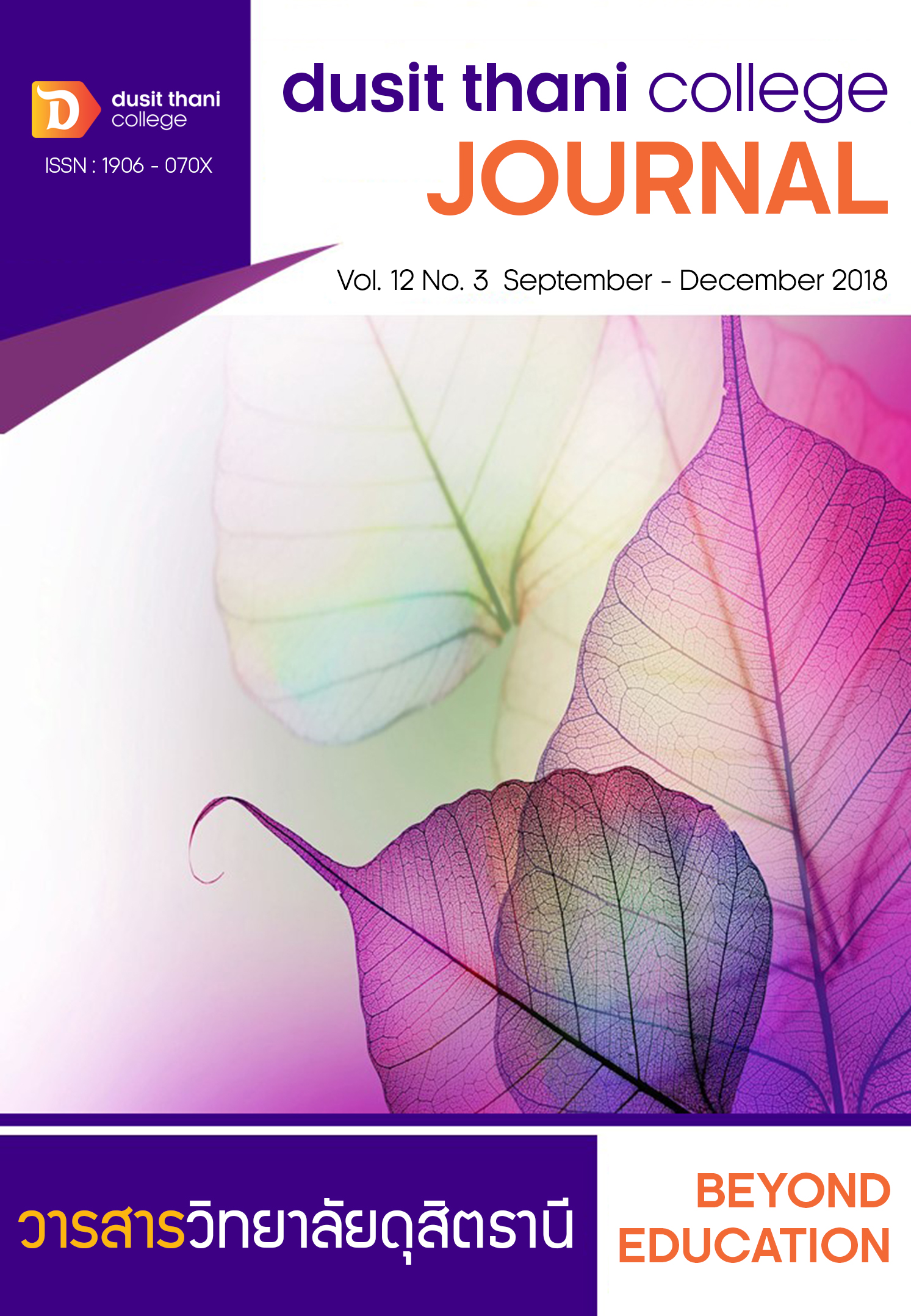The Development of a Competencies Evaluation Model for the External Assessors in Basic Education Level: An Application of Results - based Monitoring and Evaluation
Main Article Content
Abstract
The purposes of this research aimed to develop a competencies evaluation model for the external assessors in basic education level by applying results-based monitoring and evaluation using research and development methodology. The research could be divided into three phases. The first phase was to analyze the components of the competencies, both core competency and functional competency of external assessors in the basic education level. The sample group were used to analyze for eight hundred and ninety eight people, and the data was collected using the questionnaire developed by the researcher. In the second phase was developed the competencies evaluation model for external assessors
in basic education level by applying results-based monitoring and evaluation. The model was developed from the components of the competencies obtained in the first phase and used to evaluate the model after assessment by fifteen experts and focus groups consisting of ten people who have experienced external quality assessment of the basic education level.
In the third phase the evaluation of a competencies evaluation model for external assessors in basic education levels were applied for use in the experiment in five basic education institutions, and then to evaluate the model by eighteen related persons, including interviews with five administrators of basic education institutions and talk to a focus group of ten people who have experienced external quality assessment in basic education level. The results are found to be as follows: 1. core competencies consisted of four minor clusters which included: (1) teamwork; (2) moral and professional ethics; (3) achievement orientation; and
(4) ability with information technology. The functional competencies consisted of five minor clusters which included: (1) thinking systems and holistic vision; (2) understanding the context of the school; (3) ability to assess; (4) creative communication skills; and (5) ability to write reports and provide feedback; 2. the developed competencies evaluation model consisted of five factors, which included: 1) objectives; 2) goal of the evaluation; 3) evaluation method; 4) conclusion method; and 5) report and feedback; and 3. evaluation results of the model
in terms of feasibility, probability, utilization, accuracy, and satisfaction towards the use of
the model in the overview and at the highest level.
Article Details
Article Screening Policy
- All research and academic articles to be published must be considered and screened by three peer reviews in the relevant field / article.
- All articles, texts, illustrations and tables published in the journal are the personal opinions of the authors. Editors don't always have to agree. And no responsibility whatsoever is the sole responsibility of the author.
- The articles to be published must never be published. Where did you first publish? And not in the consideration of other journals If the audit found that there has been a duplicate publication It is the sole responsibility of the author.
- Any article that the reader sees as being plagiarized or impersonated without reference. Or mislead the work of the author Please let the journal editor know it will be your greatest blessing.
References
American Psychologist. 28(1). p. 1-14.
2. Freer Spreckley. (2009). Results Based Monitoring and Evaluation Toolkit. 2nd ed.
Local Livelihoods St Oswalds barn, UK. p. 5-7.
3. Jody Zall Kusek & Ray C. Rist. (2004). Ten Steps to a Results-Based Monitoring and Evaluation System. The International Bank for Reconstruction and Development/
The World Bank. P. 1, 14-18, 25.
4. Office for National Education Standards and Quality Assessment (Public Organization). (2547). Education Act B.E.2542 (1999) and Amendments (Second National Education Act. B.E. 2545 (2002). Bangkok: Prikwarn-graphic, co-ltd.
5. Office for National Education Standards and Quality Assessment (Public Organization). (2560). Guideline for the External Quality Assessment in the Fourth Round (B.E. 2016-2020). (Online). From http://www.onesqa.or.th/
upload/download/201709292308583.pdf.
6. Ornisa Jaruenruay. (2001). Desired Characteristics and Methods to Determine External Evaluators for Inspecting the Basic Education Institutions. Master of Education Program in Research of Education, Faculty of Education, Chulalongkorn University.
7. Piyamas Wangchauyklang. (2005). Desirable Competencies of External Evaluators in Basic Education. Master of Education Program in Research of Education, Faculty of Education, Chulalongkorn University.
8. Sirichai Karnjanavasri. (2007). Evaluation Theory. 5th Edition.). Bangkok: Chulalongkorn University Press.
9. The Canadian Evaluation Society. (2010). Competencies for Canadian Evaluation Practice. Volume 11 Date 04 16 2010. p. 1-15.
10. The ILAC Secretariat. (2006). ILAC Guidelines on Qualifications and Competence of Assessors and Technical Experts. ILAC-G11: 07/2006. Australia.
11. Thailand Professional Qualification Institute (Public Organization). Characteristics of External Evaluators. (2015). from
http://www.thaivq.org/index.php?option=com_content&view=article&id=39&Itemid=58/.


